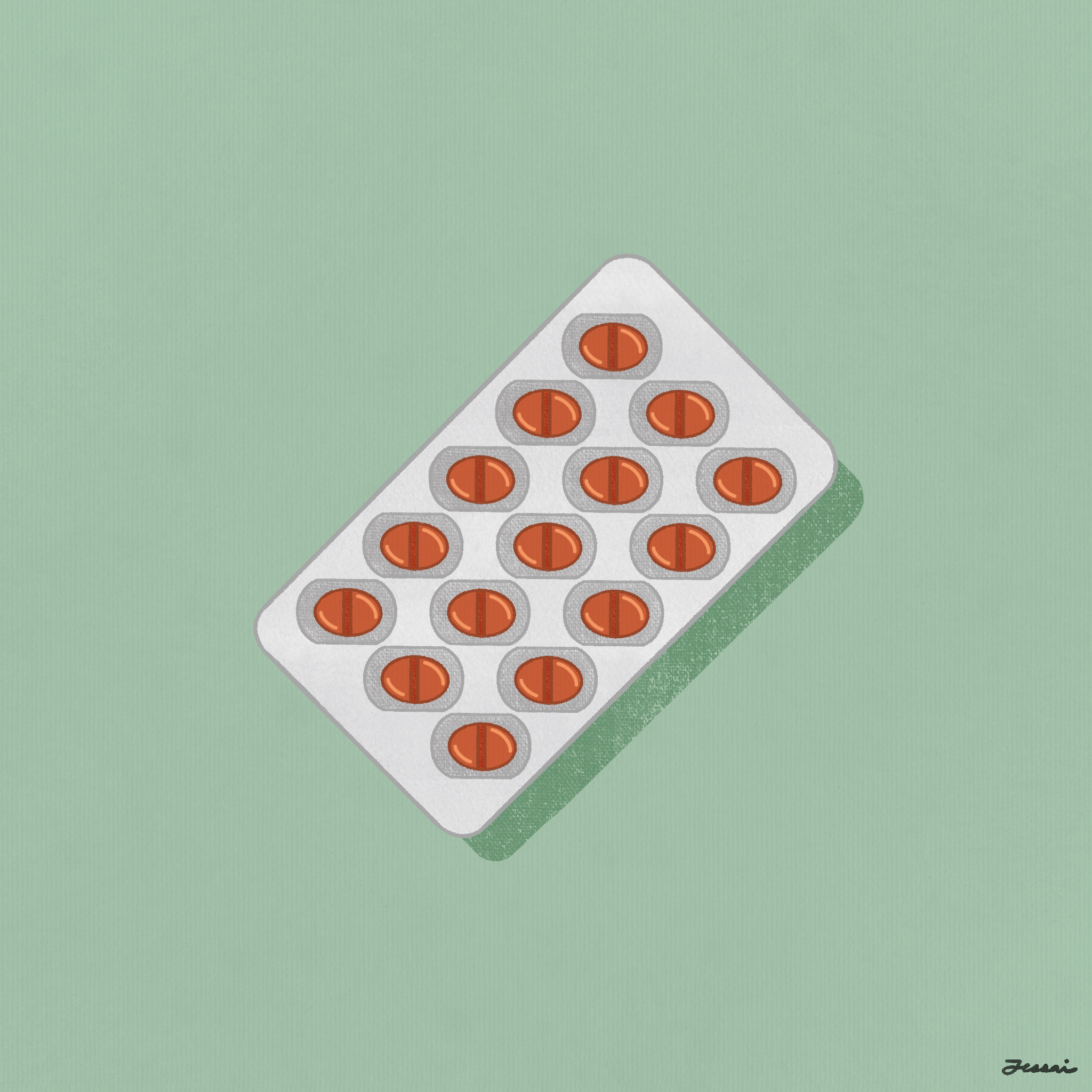
Jessai Flores
I’ve had acne since fourth grade. On Halloween, my squat, fourth grade roly poly body rolled into my parents’ room to show them the alien mound on my face.
“I think I’m dying,” I murmured, as they inspected the red bump on my chin.
“No,” they said, “you have a pimple.” And I did.
A few months later, when I realized I couldn’t pray my acne away, my mom towed me to the doctor. The dermatologist had a physique not unlike my round 4’11” frame. A blunt, middle-aged woman with the rubbermaid tupperware-thick glasses, she examined me with big eyes and prescribed me a topical retinoid.
Her witch’s brew mitigated my carbuncles (courtesy of thesaurus.com) for a while, but as I got older, my skin flared up. I tried every impossible-to-pronounce medication the doctor could spew out: tretinoin, spironolactone, adapalene gel, benzoyl peroxide, salicylic acid, doxycycline, or what you will. Despite being safe for skin, it all seemed poisonous. Some of it bleached my clothes. Some doctors told me birth control made it better, others called it the culprit behind the whole thing. There was no solution.
Finally, like more than 13 million people worldwide, I resigned to the acne-sufferer’s medication of last resort: isotretinoin. You might know it as “Accutane,” or the drug-that-must-not-be-named. I’d avoided it after years of suggestion per anecdotal horror stories detailing skin dryness, joint pain, and even suicide, all in pursuit of acceptable skin.
Isotretinoin is a Vitamin-A derivative used to treat severe acne. Although medical professionals have yet to pinpoint exactly why, they know it reduces oil production, shrinks sebaceous (oil producing) glands and prompts cellular turnover on the surface of your skin. When enough builds up in your system, your skin should stop producing oil altogether, encouraging normal cells to rise to the surface and hopefully cure your acne forever. It’s a wonder drug, if you’re willing to risk the side effects.
The inescapable ones include incessantly dry skin, constantly cracking lips, bloody noses and severe birth defects (if you get pregnant). Before starting, patients who can get pregnant must either start two forms of birth control OR sign a vow of abstinence. This is not a joke. During treatment, they must take a monthly pregnancy test; if you have a baby, it will have severe birth defects. For the first three months of treatment, doctors run blood tests to make sure your liver isn’t quiet-quitting. You can’t give blood. You can’t eat too many leafy greens—every child’s dream—at risk of a vitamin A overdose. If you value your liver, you can’t drink.
It gets worse. Accutane can cause hair-loss, joint pain, unexplained bruising, ulcerative colitis, and IBS and severe depression. I’ll stop now. Unbelievably, I didn’t want to start.
In desperation, I binge-watched “Accutane Journey” YouTube videos and prepared for the worst. Severe acne runs in my family. The only way to get rid of it would be to poison myself with vitamin A.
And it worked.
After eight months of daily pills and around 15000 mg of Vitamin-A, my acne is better, at a marginal cost. Despite constantly dousing my lips in medicated lip balm, they still crack. My skin peels constantly. Have you ever seen a child try to make their barbie walk? If you haven’t, look for me hobbling down Prospect at 9:25 on business days, and you’ll get the jist. Accutane has given me arthritis-level hip pain that (hopefully) will fade away over the next few months. As the dermatologist promised, the extreme side effects are unlikely. I didn’t have them. If you have nodular acne, you probably won’t have them either, but ask your doctor or a Reddit dermatology thread before starting. I ceremonially took my last dose today.
People have commented on my skin’s newfound clarity. I can finally look in a mirror again, and honest children have stopped asking me what’s on my face. Although my confidence has skyrocketed, when I look for skin-deep problems, I find them with ease. Like many children raised on filters and facetune, I know exactly what I should look like. I’ve kept up with the Kardashians. A more beautiful version of myself stares back at me every time I open Snapchat. We take extreme measures, like Accutane, to fit the accepted bill of beauty. I suffered through painful headgear in seventh grade to get straight teeth and humility. We forget that braces are cosmetic surgery. I have friends with lip fillers. I sautée my hair with a curling iron every time I go out. I wear high heels. Yes, I do these things to make myself feel good—not to suit any outsider’s gaze—but why does this make me feel good? Who funds the ads that insist I buy concealer?
I don’t regret taking accutane. It has greatly increased my quality of life –– but why should it?







